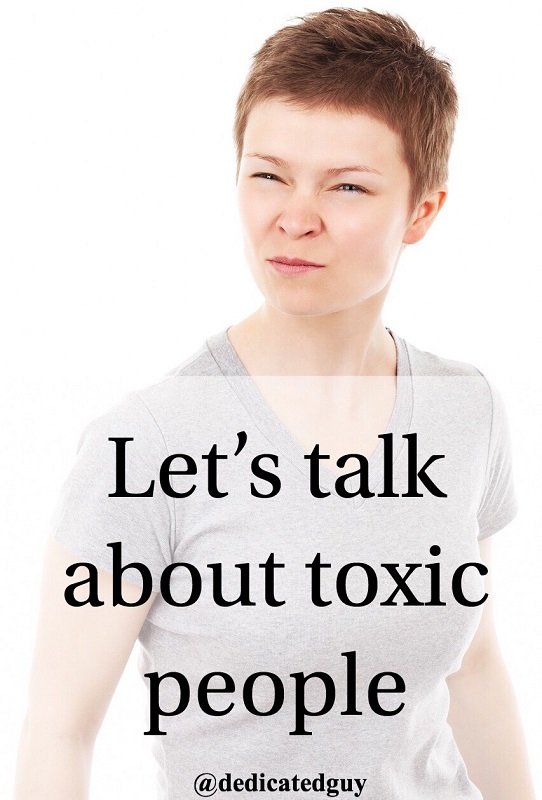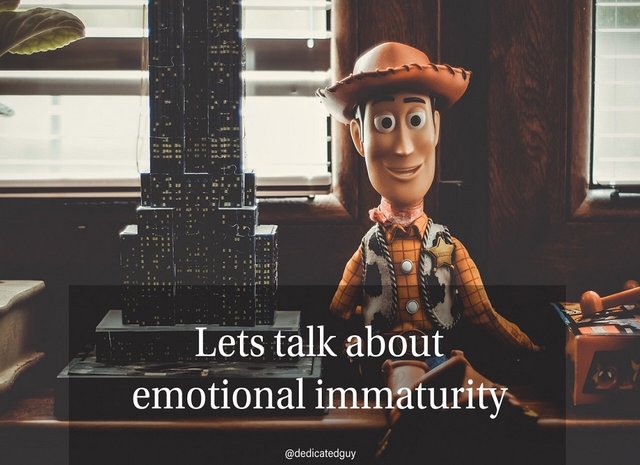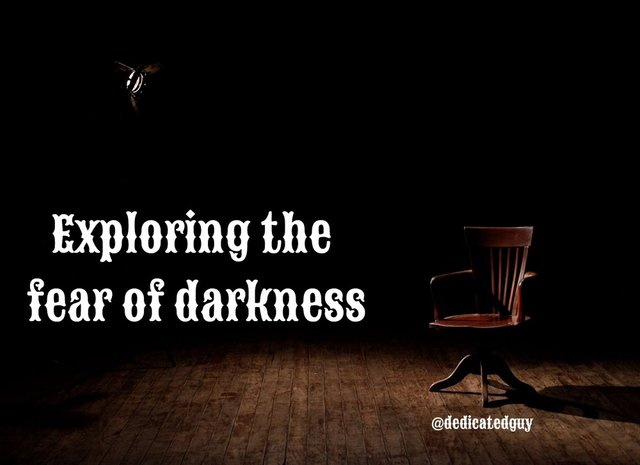Let’s talk about toxic people


Introduction
Most people probably have had to deal with a negative and manipulative person at some point in their lives, a person that always sees everything as wrong and instead of helping other people grow and try to keep a positive attitude, they do the complete opposite and create a negative effect in everyone around them.
These individuals are commonly referred to as “toxic” ones, and since there is always the chance of having to deal with them in some context, whether at work, in our family or in our social circle, it is very important to know how to manage these interactions, to avoid being disturbed or emotionally damaged by their behaviors and attitudes.

Understanding this type of people
Every time we are in the presence of someone with a negative mentality and whose behavior are harmful to everyone who is near, including even themselves, we can fairly assume that particular person can be considered as a toxic one. It is common for them to manipulate and limit other people’s actions and personal development, as well as constantly being the reason behind negative emotions or tense situations. These people go hand in hand with conflicts, and for them it is natural to create them, or make them worse if there is already a conflict in place, therefore, being able to properly identify a toxic person becomes an important task so we can act accordingly and take the best decision, that most of the time, will simply be to ignore that person and cut out any further contact.
Toxic behavior doesn't just inflict a personal hurt. It assaults systemic well being. It generates stress and frustration at the crippling devaluation. It is deeply disturbing because, as it destabilizes us, it prompts us to believe, even for a moment, that it reflects how all others see us. | Source

Toxic people are very narcissistic and self centered. They continually talk about themselves and do it excessively, they never take into consideration the needs and well being of others. In an unconscious way, they feed their ego by making other people feel bad, their problems or concerns are always above those of the rest and they try to force others to meet all their needs, even if they are objectively insignificant and non important.
When they express themselves, they always focus on the negative, constantly complaining and sharing pessimistic thoughts. Their excessive criticisms is close to permanent and only paying attention to the dark side of things, giving more importance to the problems and not to the solutions. This is obviously a counter productive attitude when trying to fix any issue there might be. A negative way of thinking would hardly ever achieve good results, which is why things tend to go wrong when a toxic person is involved.
Recent research from the Department of Biological and Clinical Psychology at Friedrich Schiller University in Germany found that exposure to stimuli that cause strong negative emotions—the same kind of exposure you get when dealing with toxic people—caused subjects’ brains to have a massive stress response. Whether it’s negativity, cruelty, the victim syndrome, or just plain craziness, toxic people drive your brain into a stressed-out state that should be avoided at all costs. | Source
They consciously put themselves in the victim role quickly and easily, this way, they pretend to be the center of attention almost every time, and this also allows them to avoid taking responsibility for their actions and make others attend to and meet their needs. This can be seen as a way of manipulating those around them and trying to take advantage of their goodwill.

Taking away the illusion of any positive event that happens to everyone near them is quite common, downplaying other people’s achievements or simply acting with indifference towards them. If they take the time to interact with other person, it is probably just to discourage said person, always making his ideas, plans or decisions look wrong and stupid. Their intense envy when other people are doing good and having good results makes them try to eliminate their merits by the means of constant criticism. This is one of the reasons why when we encounter someone like this, all we hear is this person saying bad things about other people.
When there is an opportunity to work in teams, they tend to take advantage of other people’s effort, since having initiative is something they lack, making excuses in order to not do anything is expected from them, and they look for a comfortable position so that others can do the work, although that doesn’t stop them from trying to receive the recognition thanks to the merits and achievements of others.
As mentioned before, they are unable to feel happiness when something positive happens to someone in their social circle, because they would rather be happy when bad things happen to others and feel envy when everything is going well for anyone that is not them. There is a word in the German language “Schadenfreude” that accurately describe this, it is defined as: “enjoyment obtained from the troubles of others”. | Source
Research suggests that low self-esteem or a sense of inadequacy or inferiority may be factors in those who regularly experience schadenfreude. A 2011 study in the journal Emotion found that people with low self-esteem were more likely to experience schadenfreude when confronted with a high achiever's setback | Source
They never stop to analyze the situations caused by their behavior, so they do not see their mistakes and don’t realize if they have acted well or, on the contrary, if they have made mistakes or have caused harm to the people around them.

On many occasions, the fact of believing they are superior to others and having an excessive ego means that these individuals do not learn anything from other people, which can lead them to have a certain ignorance in a lot of subjects, but due to their arrogance they are always glorifying themselves and boasting about their physical and intellectual capabilities.
My experience with toxic people
So far, I think I have only encountered only one person who was clearly toxic. It was a guy who always found the opportunity to criticize other people behind their backs, and it didn’t take long for us to figure out he was probably badmouthing every single person as soon as he get the chance. When playing football with him, and a certain pass didn’t went as planned, he was always there shouting and cursing even though he was far from being a good player. Eventually it even became something funny to observe, but it was clear for me this guy had some serious issues that needed to be solved so he could start to improve his attitude and eventually be able to have positive interactions instead of constantly putting other people down.

Managing our interactions with toxic individuals
When we are dealing with this type people it is essential to set our own limits and learn to say no to them, respecting other people is always important, and the same can be said about being respected. If we don’t want a toxic person to affect our emotional balance or to make us feel bad, then establishing limits in our interactions will allow us to avoid getting into situations that are unhealthy for us. Keeping our distance is probably the safest option because in the end, until the toxic person decides to change, interacting with him will probably result in a bad experience.
When you accept poor treatment from someone, it is usually because you don't value yourself or have high self-esteem to begin with. But keeping those people in your life can further decrease an already fragile sense of self. | Source

We must be clear and realize that the problem is theirs and not ours, when we have to deal with a toxic person, keeping in mind that his behavior is not so because he has something personal against us, but it is due to his personality. If we assume there are people who criticize everything and have such an attitude in general with all or most of the people around them, we will not be affected by their attitude and way of behaving because it has nothing to do with us personally.
When we feel attacked by someone, we might tend to see that person as an enemy which causes us to have negative feelings towards him, but if instead of doing that, we try to develop compassionate thoughts towards that person, we can protect ourselves from being too affected by his pessimistic and bad attitude, besides it can also prevent us from adopting a similar attitude, which is something that can happen after perceiving constant hostility coming from a particular person.
However, this doesn’t mean that someone like this will remain the same for his entire life, people in general can change, and modifying the behavior as well as improving the habits and the personality is certainly possible, especially in young people that are still in a developing phase with constant changes happening in how they behave and interact with others, and although externally they project a different image, it is probable toxic people are really unhappy, since their negative thoughts and attitudes can make it difficult to live in peace and harmony with those around them and with themselves as well.

Conclusion
We never know when we are going to find a toxic person, it can happen at any moment in any place, and by knowing how to identify them and what strategy to adopt in how we interact with them, we can avoid going through a bad experience and protecting our own well being as a result.
However, it is also possible to help the toxic person stop being like that, by patiently explaining him what is happening, and trying to help him understand all of the consequences an attitude like that can cause, not only in other people, but also on himself.
What about you? Have you ever encountered a toxic person?
References
merriam webster - Schadenfreude
psychologytoday - handling toxic people
health.usnews – psychology & schadenfreude
huffingtonpost – signs of toxic people
scienceofpeople – toxic people
huffingtonpost – handling toxic people
psychologymatters – identifying toxic people
psychologytoday - dealing with difficult or toxic people
Images sources

Previous articles


Let’s talk about emotional immaturity |

Exploring the fear of darkness |

Permanent lethargic state |

SteemSTEM is a community project with the goal to promote and support Science, Technology, Engineering and Mathematics on the Steem blockchain. If you wish to support the steemSTEM project you can:
thank you for sharing this. while I dont think there are any entirely toxic people in my life, it's good to note some of the poor behavior that can occur in anyone, and then try to change.
I am glad you enjoyed the read!
Hi @dedicatedguy
We have selected your post as post of the day for our DaVinci Times. Our goal is to help the scientific community of Steemit, and even if our vote is still small we hope to grow in quickly! You will soon receive our sincere upvote! If you are interested in science follow us sto learn more about our project.
Immagine CC0 Creative Commons, si ringrazia @mrazura per il logo ITASTEM.
CLICK HERE AND VOTE FOR DAVINCI.WITNESS
Keep in mind that for organizational reasons it’s necessary to use the “steemstem” and “davinci-times” tags to be voted again.
Greetings from @davinci.witness and the itaSTEM team.
Thank you so much @davinci.times!
I have found that ignoring is sometimes the best answer in dealing with these people, when it can be done, of course. Thank you for an interesting read, you really covered this subject nicely.
I think the same, it is probably the best for our own health to not too close with them.
This post has been voted on by the steemstem curation team and voting trail.
There is more to SteemSTEM than just writing posts, check here for some more tips on being a community member. You can also join our discord here to get to know the rest of the community!
Hi @dedicatedguy!
Your post was upvoted by utopian.io in cooperation with steemstem - supporting knowledge, innovation and technological advancement on the Steem Blockchain.
Contribute to Open Source with utopian.io
Learn how to contribute on our website and join the new open source economy.
Want to chat? Join the Utopian Community on Discord https://discord.gg/h52nFrV
I really love your approach on discussing "toxic people" and it's really nice that you described the narcissistic personality traits some of them possess. I have studied narcissism in non-clinical population recently and I really appreciate your content!
What I would like to add to your thoughts is just that sometimes these people are not so much narcissistic, rather they could be insecure and afraid of new relationships. Being toxic is their first "defensive mechanism" but once you get over this barrier you might discover a harmless and good person in general.
All the best to you, as always :)
o, yes, it´s very difficult to stay close to that toxic people
godd article, thanks for charing!
I've only met one truly toxic person, but he turned out to be a good guy after all:
:P
Seriously, great post. I agree that sometimes the only way to deal with toxic people is to cut them out of your life entirely or develop strategies to manage them if you can't cut them out entirely.
hahahah that guy is probably the only toxic individual that I like :)
Learning to deal with toxic people is sometimes easier said than done @dedicatedguy I have encountered a couple during my lifetime and cringe just thinking about how you have to prepare yourself before entered into any form of challenge.
Almost boils down to the spoiled child syndrome, never growing up to admit mistake. Grandeur normally rides in hindsight, always making them right.
True, which is why cutting out contact is what people should do most of the time.
This post isn't wrong, but it also isn't correct.
You see, a victim needs a bully, a bully needs a victim, and so you find them near each other.
In order to get rid of toxic people in your life, it is you that has to change. You have to see what inside you is getting a pay-off from engaging with toxic people. After you find this in yourself, you need to work to clear it.
You will know that you are done clearing, when the toxic people just vanish.
However, it is one step in the healing process to recognize toxic people and recognize the negative impact they are having on your life.
And you cannot help a toxic person by "showing them" the error of their ways. It just doesn't work. Especially if you are not working on clearing that part of you that is getting the pay-off from being there with them. Until you are clear, you are actually holding that person in that state.
I know this is a pain in the ass way of looking at this, but if you seriously want to make your life better, you have to take ownership of what you are attracting into your life.
When dealing with this, remember, no blame, no shame. You are here, that is a fact, start fixing it. If you do not want to be here, then slowly plot a course out.
That can be the case sometimes, but it is also possible to encounter toxic people in the family for example, in which it is not the person looking for this type of people without realizing it, but rather randomly encountering them.
Agree, as I said to @joanstewart above, cutting out contact is what most people should do when dealing with toxic individuals.